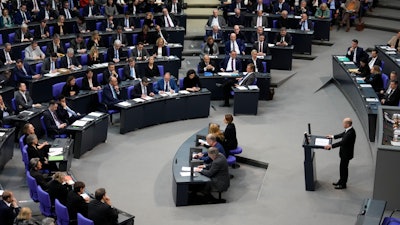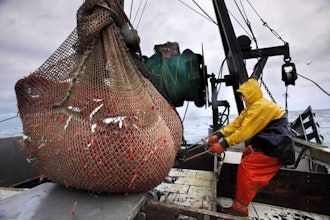
BERLIN (AP) — German lawmakers on Friday approved cuts to fuel subsidies for farmers that prompted angry protests, along with a 2024 budget the government had to revamp after a court ruling blew a hole in its financial plans.
Parliament's lower house voted in favor of the overhauled 476.8 billion ($516 billion) budget for Europe's biggest economy and legislation including measures to fill the gap, among them the subsidy cuts.
Normally, parliament would approve the budget in December. But this time, the government had to rework its plans after Germany's highest court annulled its decision to repurpose 60 billion euros ($65 billion) originally meant to cushion the fallout from the COVID-19 pandemic for measures to help combat climate change and modernize the country. That maneuver fell foul of Germany's strict self-imposed limits on running up debt.
The immediate result of the ruling was a 17 billion-euro hole in the 2024 budget. After weeks of wrangling, Chancellor Olaf Scholz's unpopular three-party coalition drew up a package that foresaw cutting some subsidies and spending while sticking to plans to step up support for Ukraine.
Coalition leaders said the government would abolish a car tax exemption for farming vehicles and tax breaks on diesel used in agriculture. Facing pushback even from the agriculture minister, they watered that down, saying the car tax exemption would be retained and the cuts in the the tax breaks staggered over three years. They stuck to the remaining plan despite subsequent protests by farmers.
The legislation also provides for the tax on plane tickets to be increased. Germany's levy on carbon dioxide emissions from fuel was already increased by more than previously planned last month, while the government abruptly ended subsidies for buying new electric cars that originally were due to stay in place for months longer.
Parliament's upper house, which represents Germany's 16 state governments, still has to consider the cost-cutting measures and isn't due to hold its next meeting until March 22. It could, at least in theory, raise objections to the plan and refer it to a committee that resolves disputes between the two houses.






















